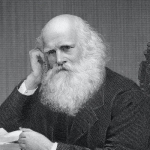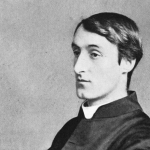Goodbye, lady in Bangor, who sent me
snapshots of yourself, after definitely hinting
you were beautiful; goodbye,
Miami beach urologist, who enclosed plain
brown envelopes for the return of your very
“Clinical Sonnets”; goodbye, manufacturer
of brassieres on the Coast, whose eclogues
give the fullest treatment in literature yet
to the sagging breast motif; goodbye, you in San Quentin,
who wrote, “Being German my hero is Hitler,”
instead of “Sincerely yours,” at the end of long,
neat-scripted letters extolling the Pre-Raphaelites:
I swear to you, it was just my way
of cheering myself up, as I licked
the stamped, self-addressed envelopes,
the game I had of trying to guess
which one of you, this time,
had poisoned his glue. I did care.
I did read each poem entire.
I did say everything I thought
in the mildest words I knew. And now,
in this poem, or chopped prose, no better,
I realize, than those troubled lines
I kept sending back to you,
I have to say I am relieved it is over:
at the end I could feel only pity
for that urge toward more life
your poems kept smothering in words, the smell
of which, days later, tingled in your nostrils
as new, God-given impulses
to write.
Goodbye,
you who are, for me, the postmarks again
of imaginary towns—Xenia, Burnt Cabins, Hornell—
their solitude given away in poems, only their loneliness kept.




















Comment form: